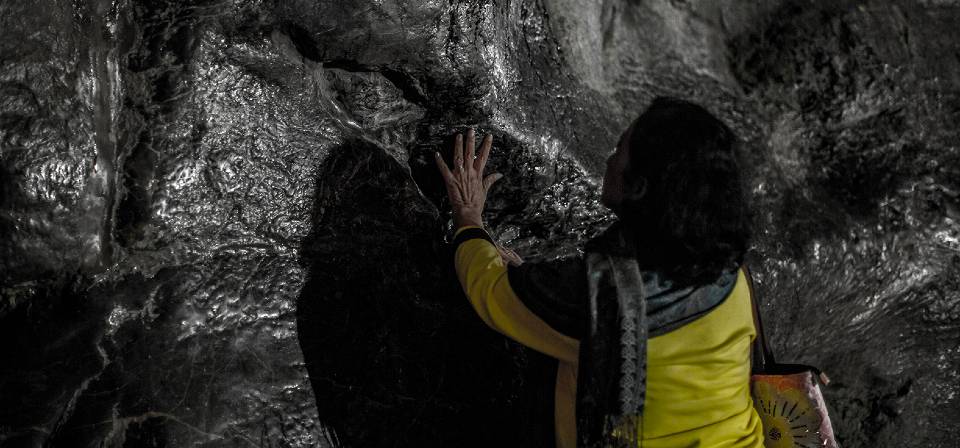Tags :: Marian Apparitions and Miracles

Watch: The Song of Bernadette and Lourdes – An Arts & Faith Top 100 discussion with Kenneth R. Morefield
In which I chat with the editor of a collection of essays about the Arts & Faith Top 100 films about my contribution to the book

A cinematic pilgrimage: A pioneering documentary on Lourdes spotlights faith and suffering
Is the face of Christ visible in this film? After this cinematic pilgrimage, have we seen the Virgin? As with the pilgrims themselves, that may depend on whether we have eyes to see.

Fátima (2020)
Marco Pontecorvo’s Fátima is the first screen version of the Marian apparitions at Fátima and the “Miracle of the Sun” I’ve seen that feels like the characters are living through the story’s events in the present tense.

Filming Fátima: Interview With Filmmaker Marco Pontecorvo
The cowriter and director of a new film about Our Lady of Fátima talks about why he was drawn to the story and how he tried to realize the miraculous, from a very human Virgin Mary to surreal visions of war and hell.

Our Lady of Fatima at the Movies
I have never seen a bad movie about Fátima. Three stand out to me: The Miracle of Our Lady of Fatima (1952) is the best known; Apparitions at Fátima (1992) is the most authentic; and The 13th Day (2009) is the most artful — and my favorite of the three.

Apparitions at Fatima (1992)
Warner Bros’ The Miracle of Our Lady of Fatima may be better known, but Daniel Costelle’s 1992 Portuguese production Apparitions at Fatima is a more historically accurate and spiritually sensitive account of the visionary experiences of three young Portuguese children in 1917, culminating in the miracle of the sun witnessed by thousands.

The Miracle of Our Lady of Fatima (1952)
Old-fashioned, reverent, basically faithful to the facts, The Miracle of Our Lady of Fatima never quite emerges from the shadow of the earlier, superior The Song of Bernadette, but it ups the ante with sterner opposition (militant Marxists rather than freethinking civil authorities) and a more dramatic climax.
Bernadette (1988)
Eschewing both the slickness and Hollywood sentiment of The Song of Bernadette and the speculative psychology of Alain Cavalier’s contemporary Thérèse, Delannoy’s unembellished, straightforward account seeks only to tell Bernadette’s story in a clear and compelling way.
The Song of Bernadette (1943)
Based on the historical novel by Jewish author Franz Werfel, the beloved classic The Song of Bernadette stands head and shoulders over most religiously themed fare from Hollywood’s golden age.
Recent
- Crisis of meaning, part 3: What lies beyond the Spider-Verse?
- Crisis of meaning, part 2: The lie at the end of the MCU multiverse
- Crisis of Meaning on Infinite Earths, part 1: The multiverse and superhero movies
- Two things I wish George Miller had done differently in Furiosa: A Mad Max Saga
- Furiosa tells the story of a world (almost) without hope
Home Video
Copyright © 2000– Steven D. Greydanus. All rights reserved.